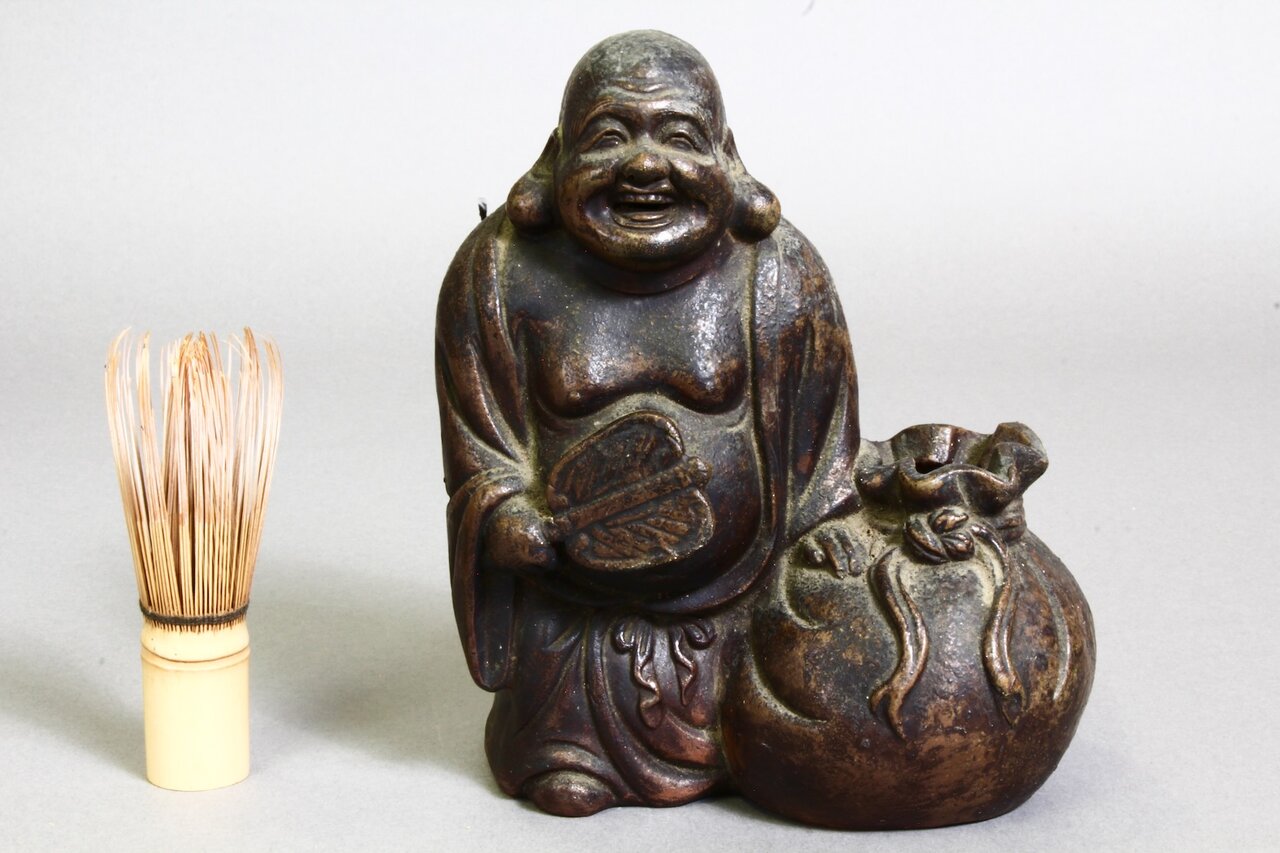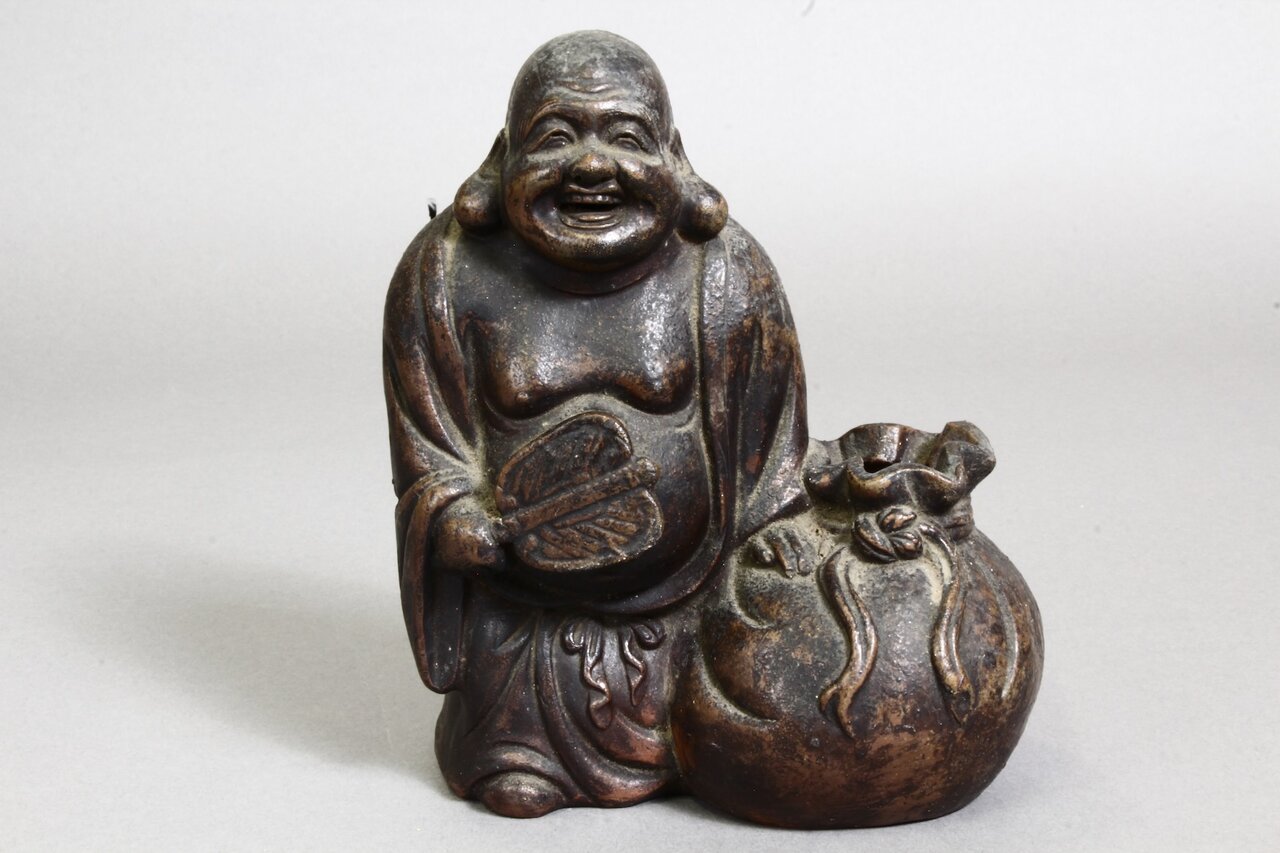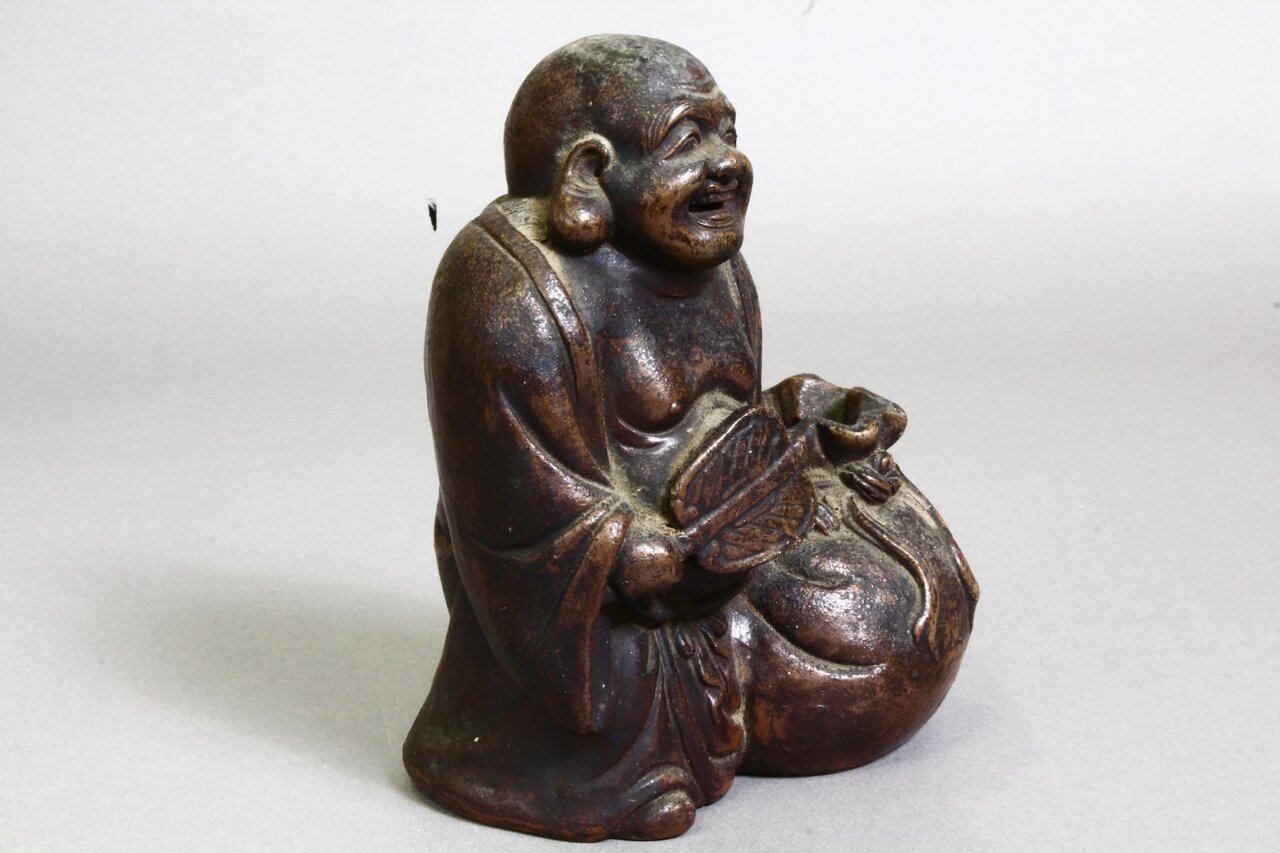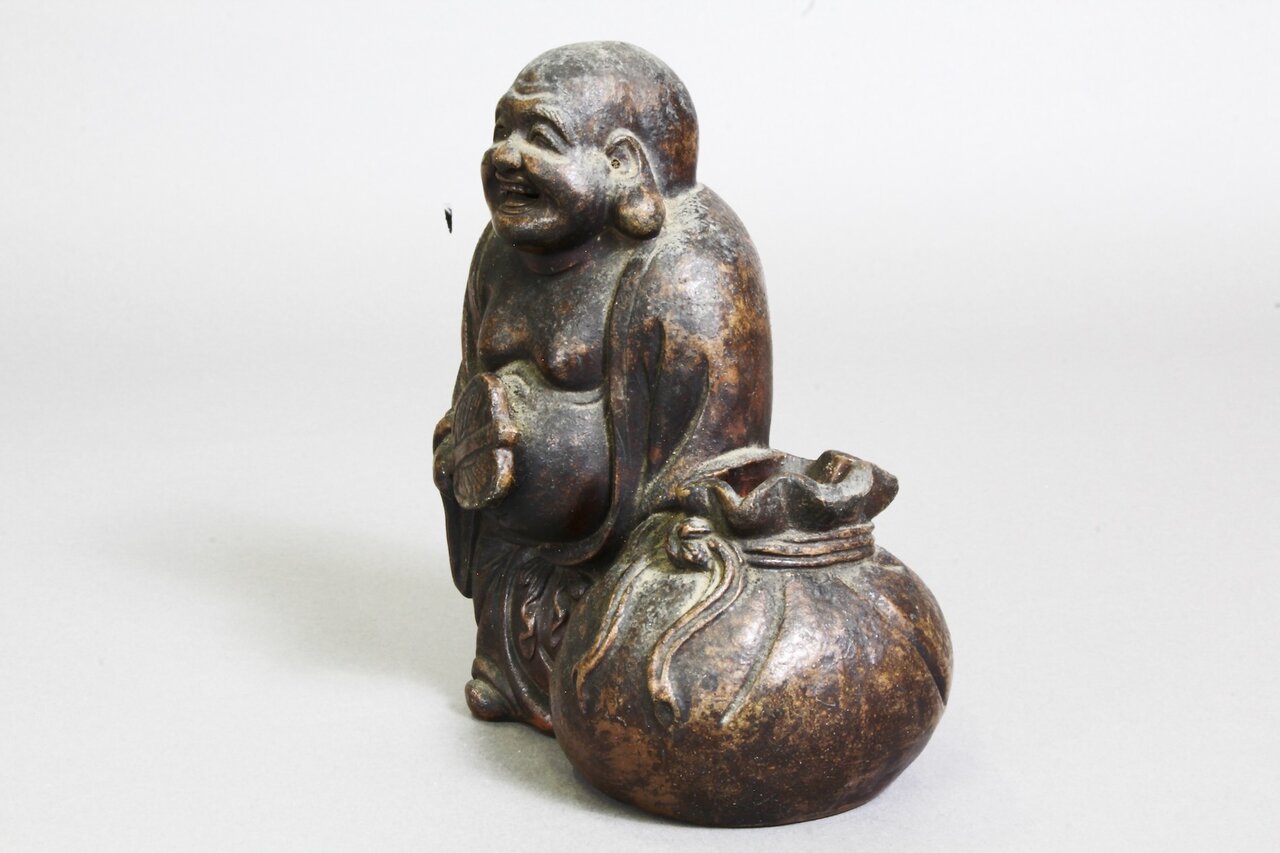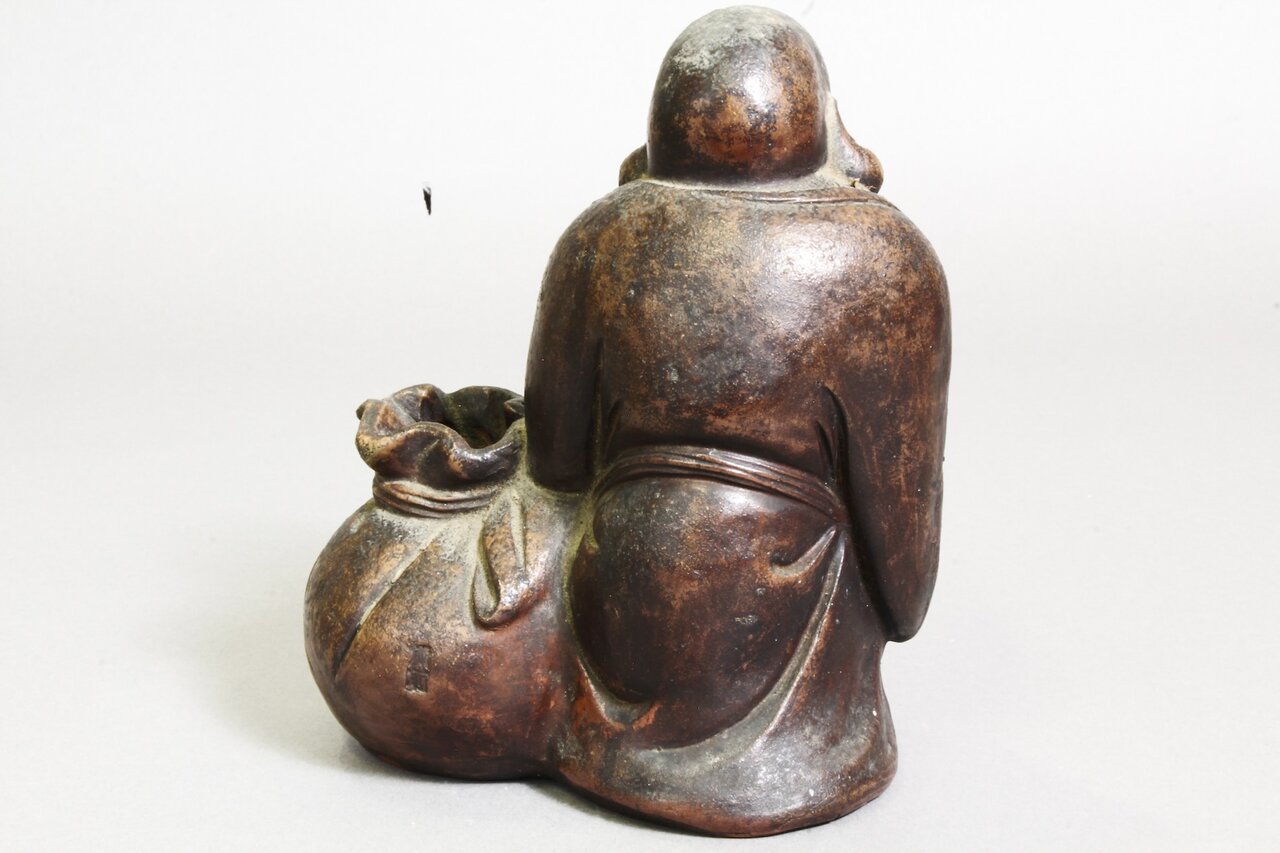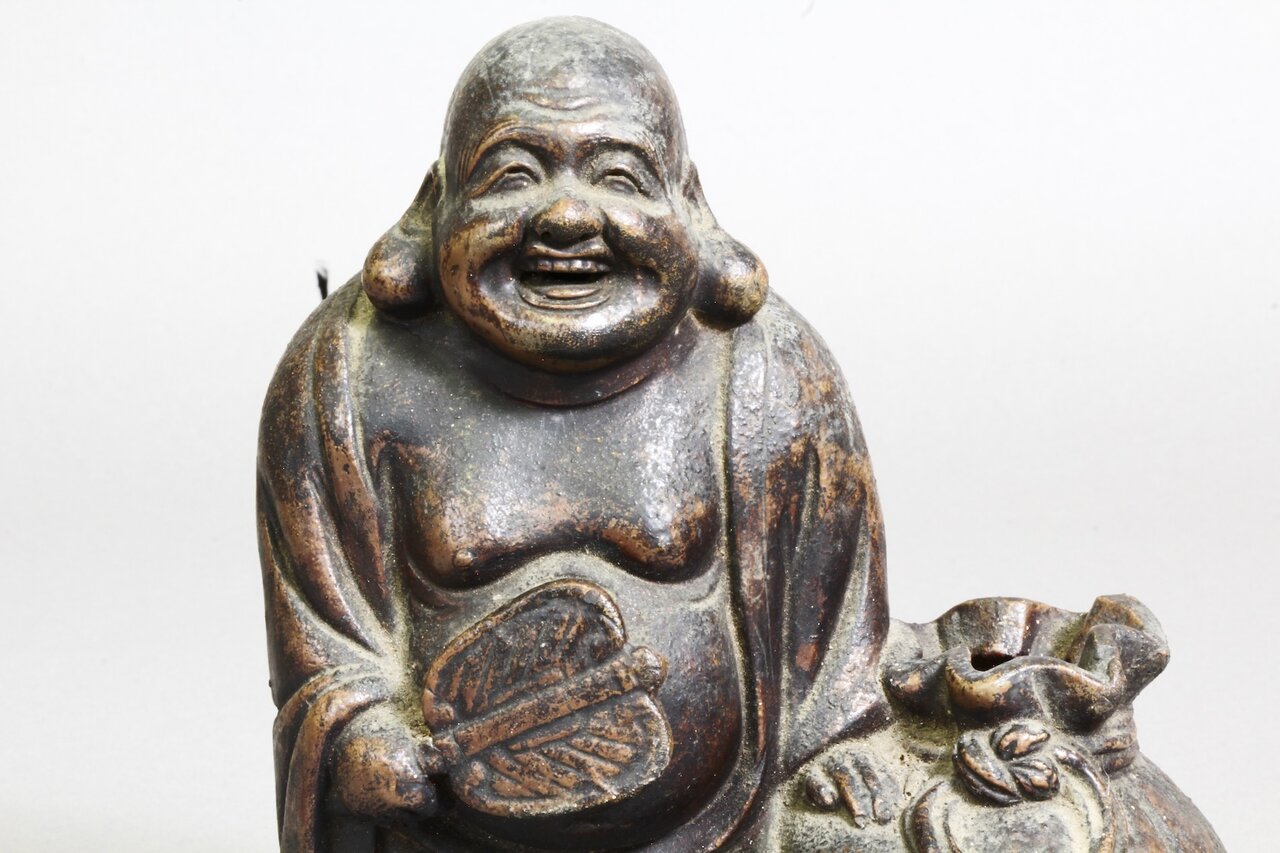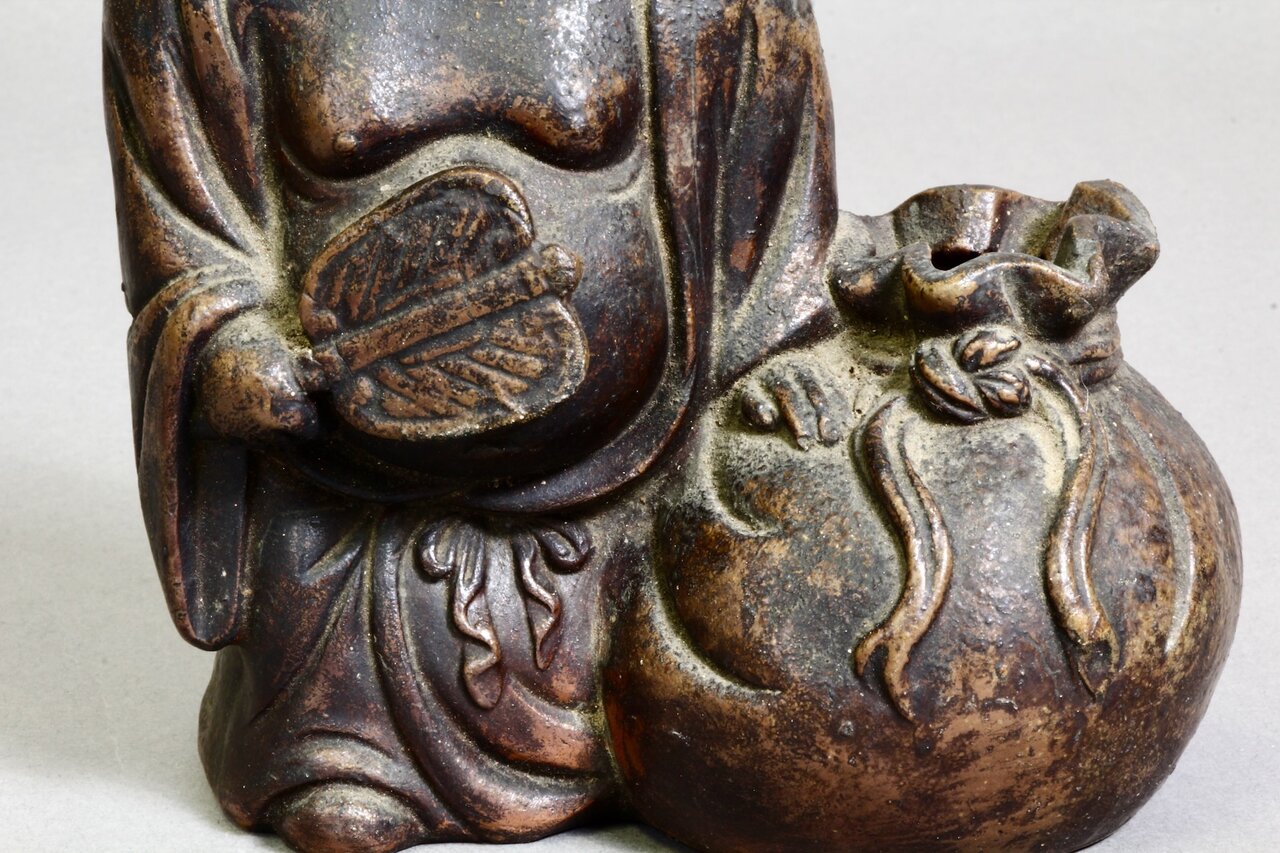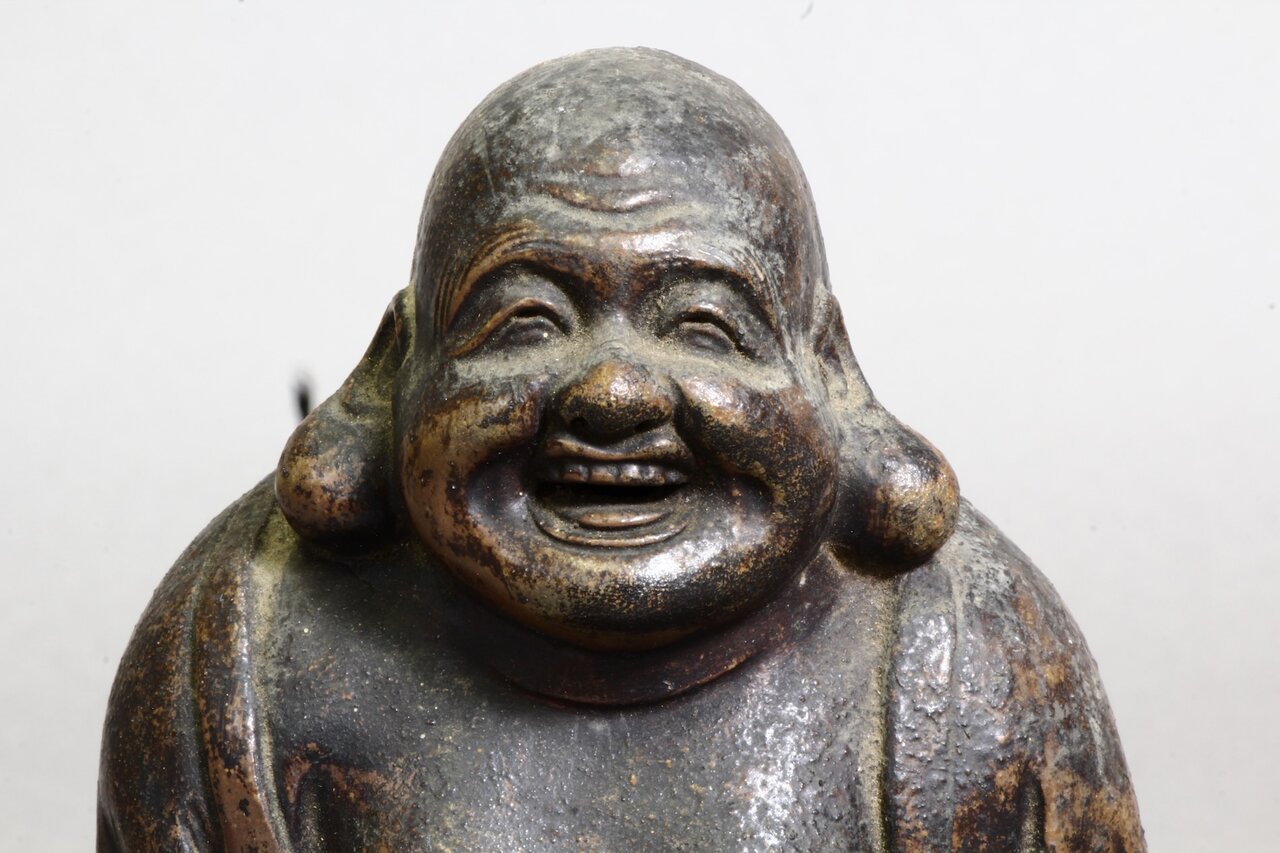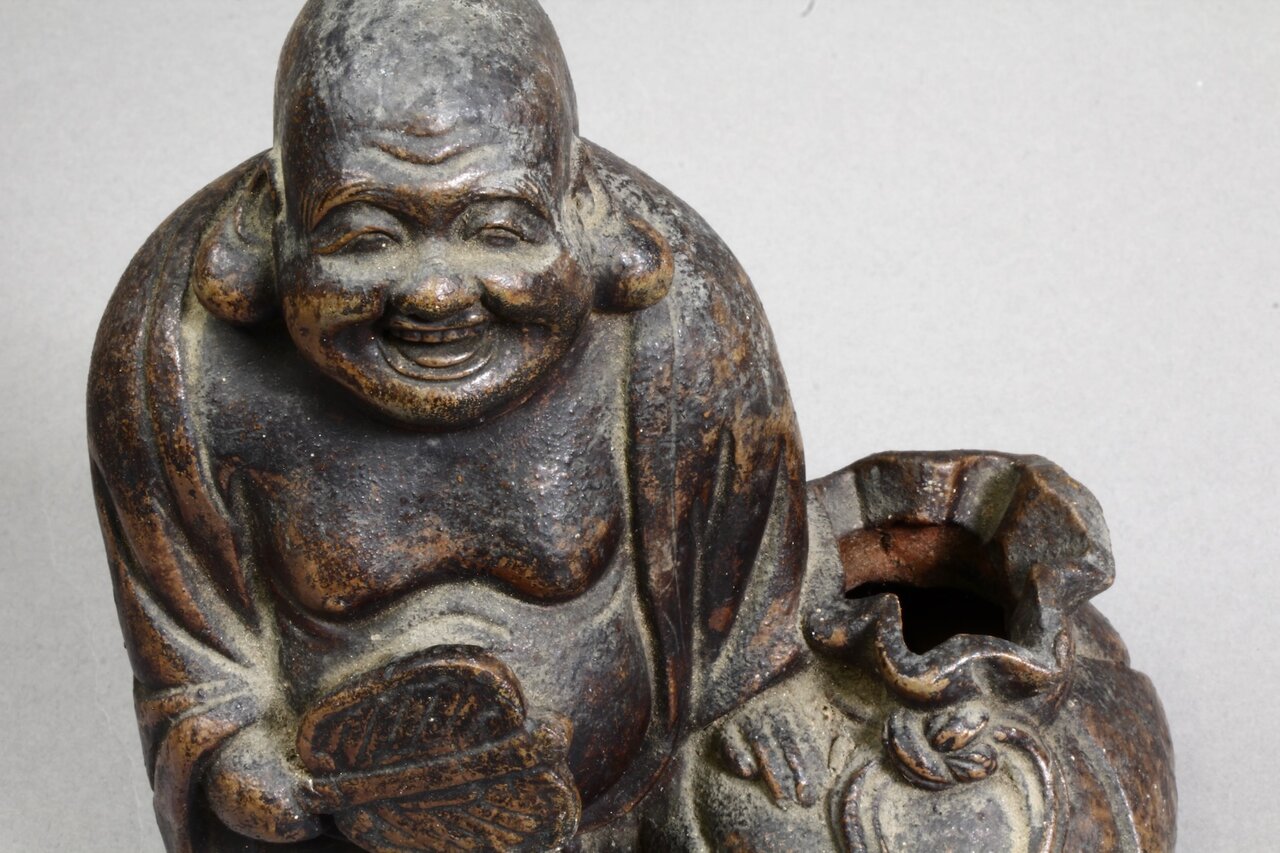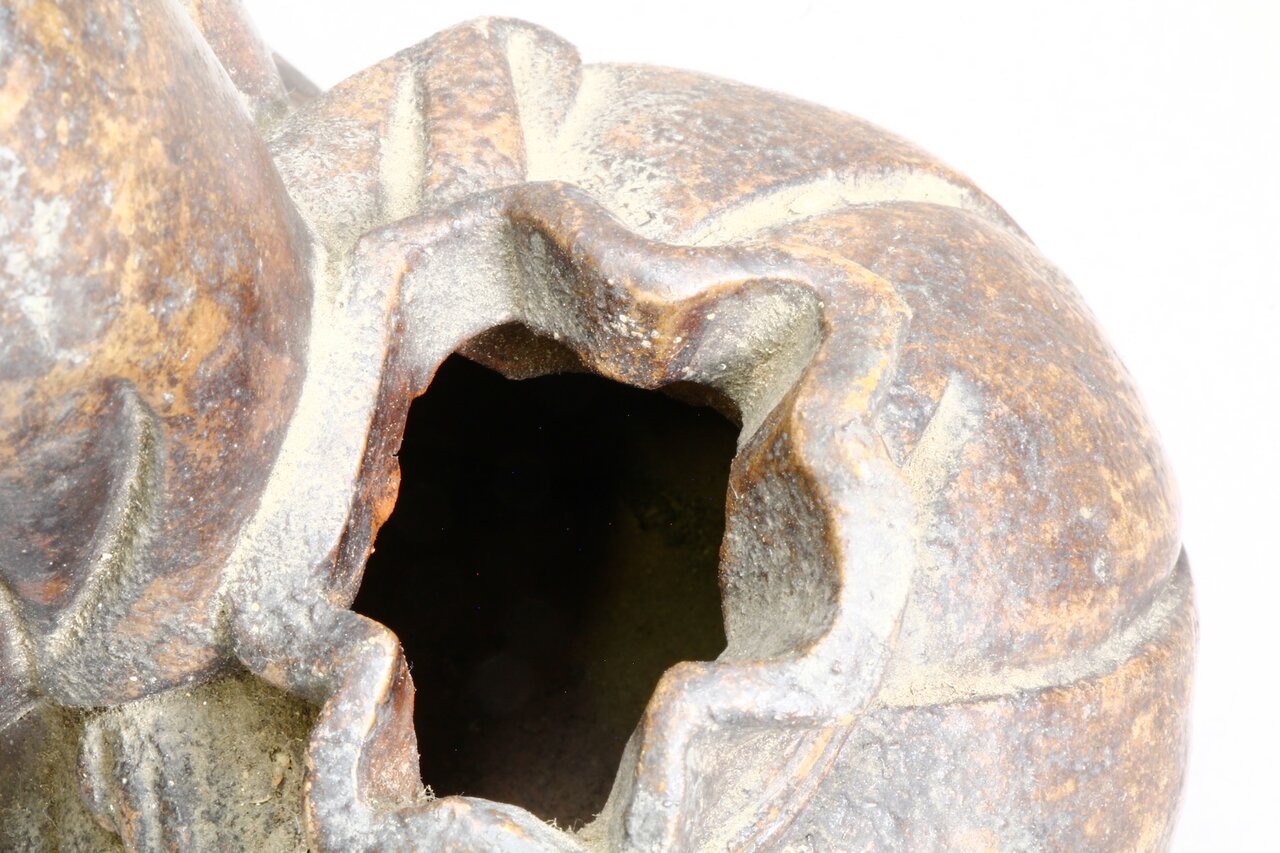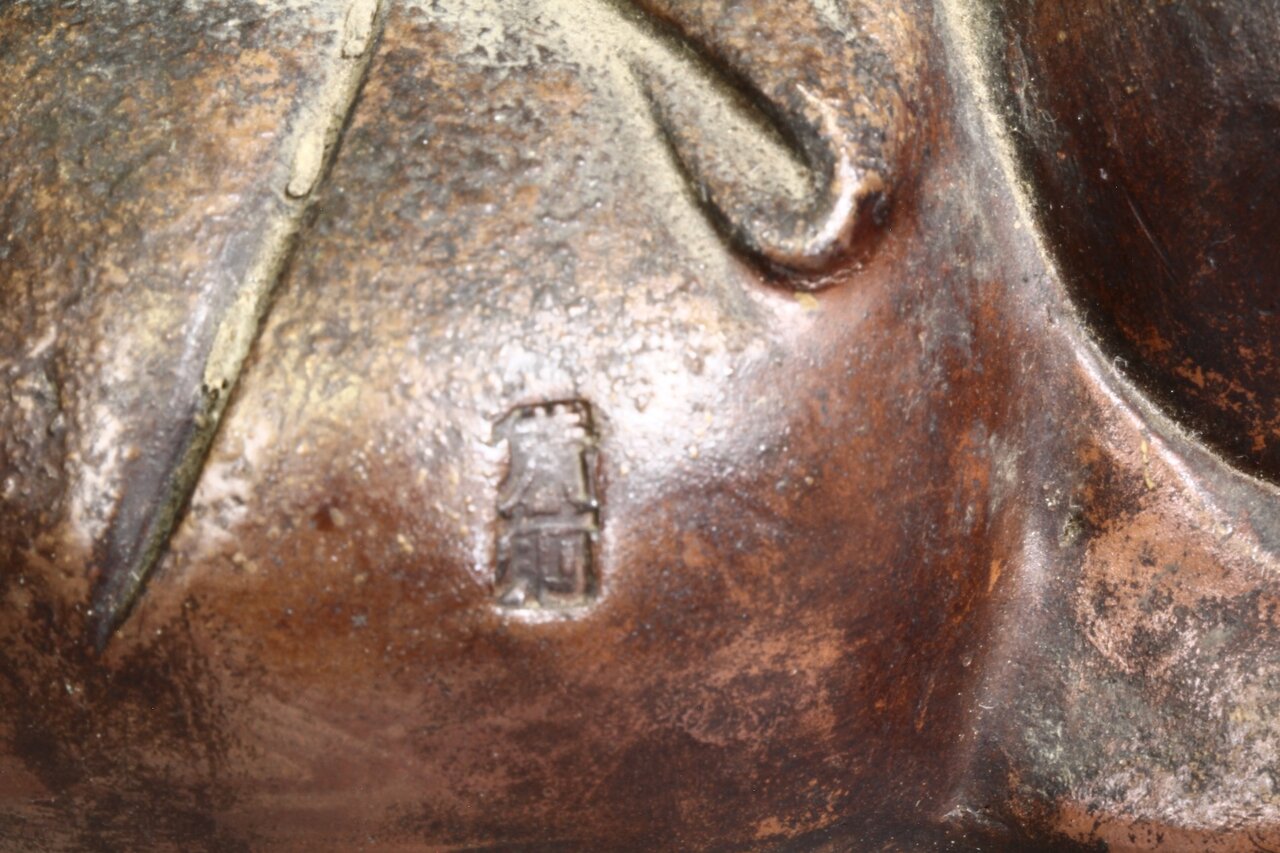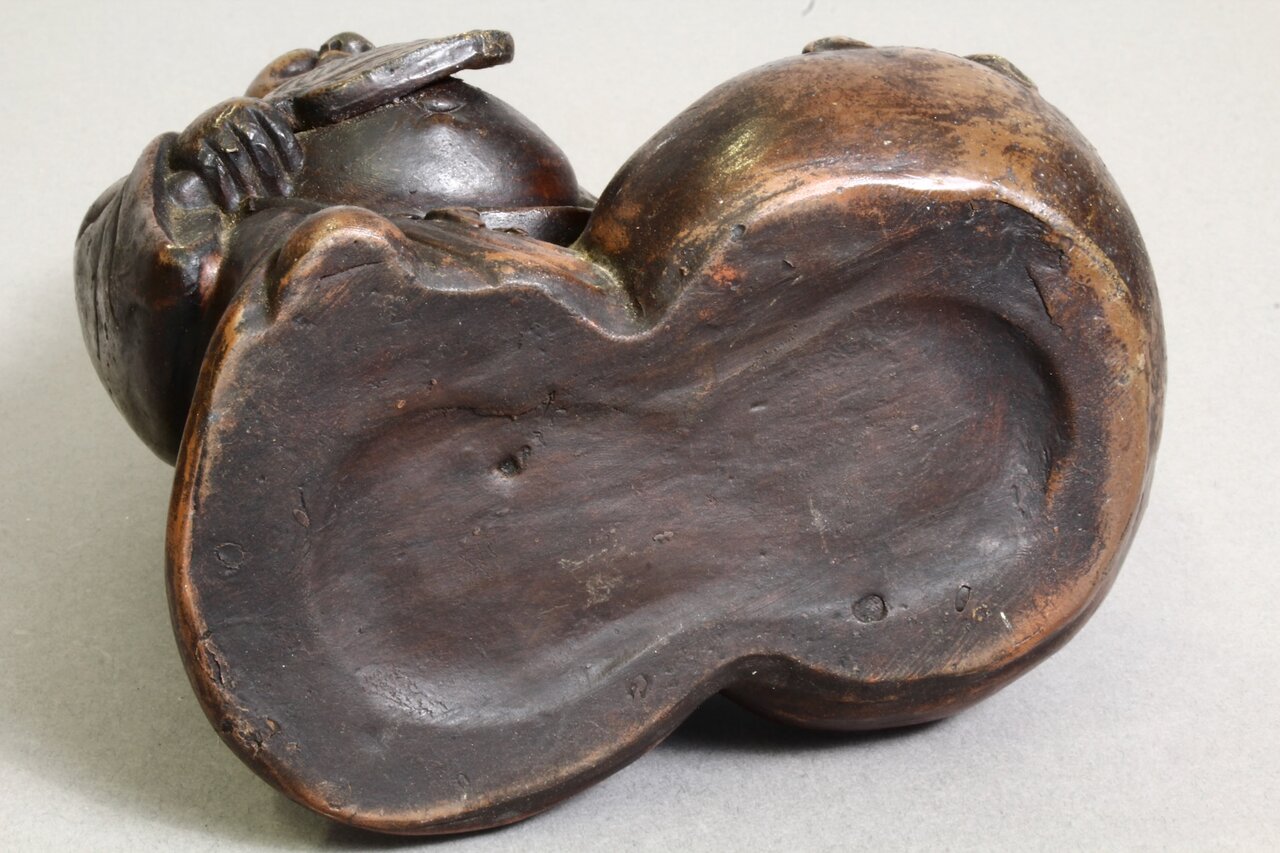Japanese hotei












- Material: Ceramici, Bizen
- Height: 18cm/15/10cm
- Condition: very good
- Japan: 20th century
- brand
- also intended as a vase; rarely
The seven gods of luck (shichi-fukujin), which cannot be clearly assigned to a religious direction, are very popular as patron saints and lucky charms in Japan.
One of them is Hotei san, who is also viewed in some contexts as a manifestation of the Buddha.
He is the kind and cheerful God of contentment and abundance, with a big belly and a full sack. Sometimes small children (Karako) climb on his shoulders to play practical jokes on the good-natured man.
Article no. 15.08.235
290,00 €
incl. VAT., plus shipping
-
+


